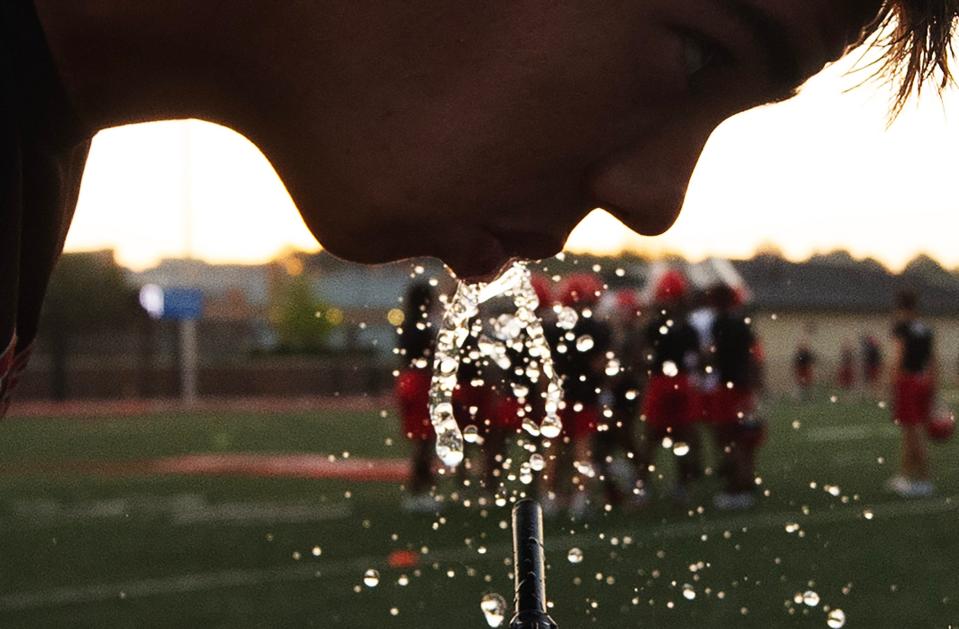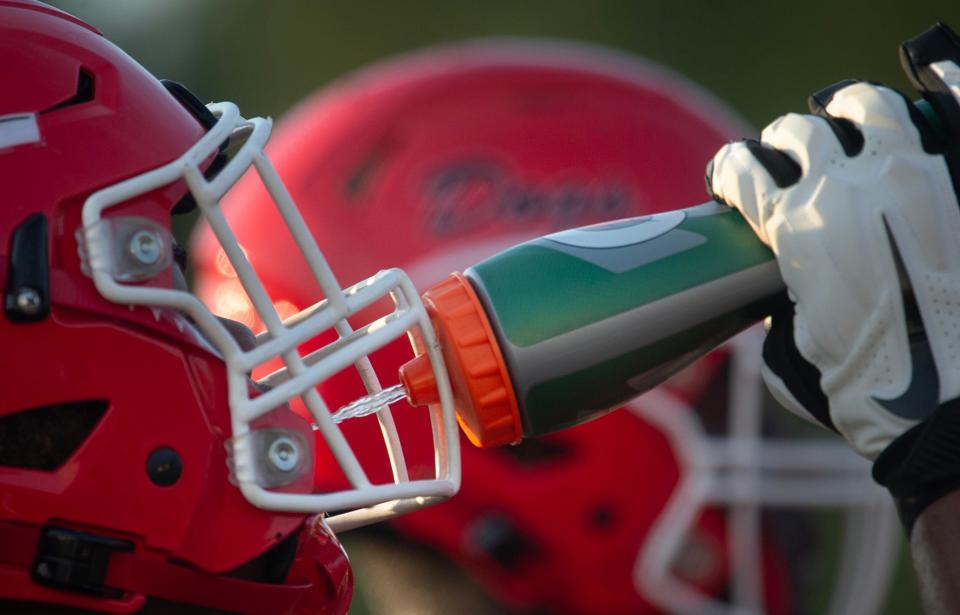Will MS athletes start receiving heart screenings as some other places have?
This is the third in a multi-part series on high school athlete safety as the 2023-24 athletic seasons approach.
The Mississippi High School Activities Association football season kicks off on Thursday, Aug. 24, and every player on the field will have at least had a sports physical to be cleared to play.
This important health screening helps ensure players can practice and compete safely heading into each season. Those physicals are not meant to replace a student-athlete's annual exams, and don't delve deep into more complex areas such as heart health despite the fact that athletes are at a greater risk than the general student population.
According to a 2018 report in the New England Journal of Medicine, citing a study of soccer players with a mean age of 16.4 years, Sudden Cardiac Death (SCD) occurred at a rate of 6.8 per 100,000. The American College of Cardiology estimates for SCD vary wildly from 1 in 23,000 to 1 in 300,000. Both reports agree that male athletes and Black athletes are at a greater risk.
According to the American Heart Association, 39% of all cardiac arrests for those 18 and under were sports related. The rate of SCD is two to three times greater for athletes than the general population, though gender and race are factors in the rates.
So will we see Mississippi high school athletes receiving more complex heart screenings such as an electrocardiogram regularly? Not likely, doctors say. One reason is simple — money.
Mississippi has roughly 12,000 high school football players at 245 participating schools. Heart screening costs can vary significantly depending on insurance and where that family is in its deductible process. Without insurance, an average electrocardiogram can cost more than $200. That could mean millions of dollars each year across the Magnolia State. Heart screenings are "not on the horizon" in the state, according to MHSAA executive director Rickey Neaves.
"It's not plausible," said Dr. Derrick Burgess, a sports medicine specialist at UMMC. "No. 1, if you do a screening EKG on all the athletes you're not going to pick up enough to really justify doing it and it would cost millions upon millions of dollars to get that done."
The MHSAA doesn't require student-athletes to go through an electrocardiogram, also known as EKG or ECG, to participate in athletics. Nearby states — Tennessee, Texas and Florida — also don't require electrocardiograms for high school athletics. But parts of Florida do require them. Florida's Orange County and Volusia County require an ECG to participate in athletics.
Texas and Florida lawmakers have both proposed legislation that would require heart screenings for high school athletes, but laws were not passed in either state.
Mississippi's general health screening will send an athlete to an additional screening if needed. A common reason for further examination is high blood pressure, according to Jason Craft, an orthopedic doctor who specializes in hips and knees with the Mississippi Sports Medicine and Orthopedic Center. Players must see their primary care provider or cardiologist to be approved.

"I might have a kid whose blood pressure might be high," Bay Springs Athletic Director Dan Brady said. "They'll just write on the form 'needs further evaluation.' We'll send that kid to the doctor. The doctor will check them out. If there is no issues, we're good to go. If there is an issue we'll move from there."
Student-athletes who are referred to a primary care physician or cardiologist will likely receive an electrocardiogram according to Burgess.
This exam records electrical signals in the heart and can help detect several heart issues. The EKG can detect possible irregular heart rhythms and artery complications and a variety of heart defects.
"Let's talk about access," Burgess said. "In certain areas, there are no physicians that they can get access to. Many times, we are their intro into the medical realm. If it's not for something that we're finding on the physical, it could go missing."
Part 1 in the series - new guidelines: As HS football practice begins, new protocols are in place to protect athletes. See why
Part 2 in the series - physicals: What athletes have to do to be cleared to play MS high school sports. See what's screened
However, one of the most important parts of the physical is previous medical history and family history. Physicians at the collegiate level often have previous medical histories for athletes. Student-athletes in the MHSAA and their parents are responsible for filling out information on family medical history.
"The main thing we are trying to get is the medical history from them," Burgess said. "We don't do any screening or EKG for athletes unless they have a strong family history or they are predisposing factors."
"We give out forms for the parents to fill out. Because in that 10-minute, 15-minute time that we are with them, we can only access where they are right now."
Knowing an athlete's medical history could help a physician recommend an athlete for further testing, which could involve an EKG.

The cost and logistics surrounding requiring an electrocardiogram for each high school athlete have prevented state associations from adopting requirements, though some places in Europe conduct regular heart screenings.
The English Football Association (FA) has run a mandatory cardiac screening program for adolescent athletes in the United Kingdom since 1997, according to the New England Journal of Medicine report.
In the interim, sports physicals are the best way to catch potential health issues with athletes, especially for student-athletes that may not get an annual check-up.
This article originally appeared on Mississippi Clarion Ledger: Should Mississippi high school athletes receive heart screening test

